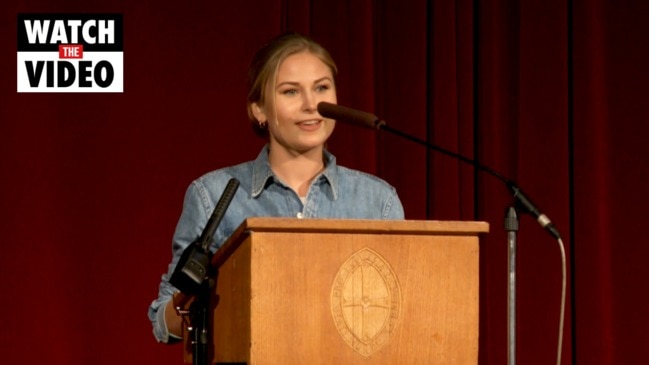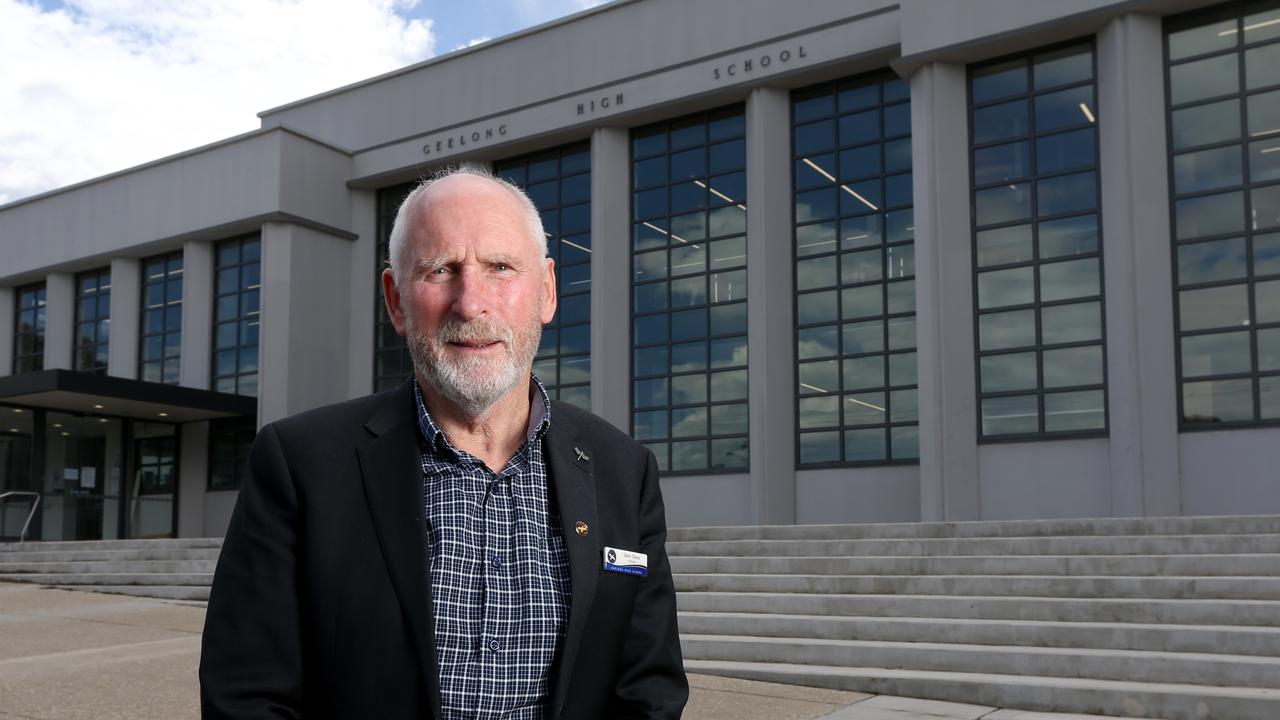Some Geelong schoolkids misbehaving more than usual after return from remote learning
Some Geelong teenagers are struggling to re-engage with their education following lockdowns, with the pandemic exacerbating school refusal issues among young people.

Some Geelong teenagers are struggling to re-engage with their education following lockdowns, with the pandemic exacerbating school refusal issues among young people.
Barwon Child, Youth and Family youth services manager Mandy Baxter said over the past 18 months, the team had seen that Covid-19 significantly impacted young people’s engagement with school and education.
“Our Navigator program that works with young people who have already been identified as disengaging from education has seen an approximate 30 per cent increase in young people choosing not to re-engage with school,” Ms Baxter said.
And about 20 per cent of students Ms Baxter’s team work with in The Geelong Project have had some difficulty returning to school on-site learning.
The project focuses on early intervention for young people at risk of disengaging from or leaving school, and BCYF engages youths at Northern Bay College, Newcomb Secondary College, Geelong High School, Western Heights Secondary College, North Geelong Secondary College, Lara Secondary College and Grovedale Secondary College.
Ms Baxter said the increases reflected what had been seen across a range of BCYF’s services – that the disruption and challenges of COVID-19 has exacerbated issues for many in our community.

“As a result, it is those young people who were already having challenges attending school before the pandemic, that we are now seeing having most difficulty returning,” Ms Baxter said.
“Like many of us, young people are experiencing a range of emotions about returning to school, including anxiety about leaving home, social problems related to reconnecting with peers and the challenge of getting back into a structured routine.
“There are also a small number of young people who have shared with us that they really enjoyed remote learning, especially those who have previously experienced bullying and anxiety.”
Bianca Tassone, a clinical psychologist at Chris Mackey and Associates who works extensively with teenagers, said she had seen an increase in school refusal.
“In terms of adolescents with pre-existing issues (the pandemic) exacerbated it, in saying that it’s also increased in students that didn’t have it previously,” she said.
She said the staggered approach returning to school had been helpful returning from remote learning.
“In terms of a therapeutic approach I always go with that gradual re-entry,” Ms Tassone said.
She said working as a team – involving the school, student’s family and an external psychologist if available – and formulating reintegration plans for kids facing school refusal challenges was “really important”.
She said school refusal was usually underpinned by debilitating anxiety, and students could be anxious about potential adverse experiences like panic attacks or not knowing an answer in class.
Ms Baxter said there could be a range of different and often multiple factors that lead to a young person disengaging from school.
“Family conflict, homelessness, poor mental health or difficulty in learning in the particular school environment are a few common contributing factors,” she said.
Barwon Health mental health, drugs and alcohol services clinical director Associate Professor Steve Moylan said sudden lifestyle changes often came with anxiety, even if it’s something that was seen as a positive like the return to school, work, or social activities.
“It’s important to remember this is normal and everyone reacts differently to social situations,” Prof Moylan said.
“Parents of teenagers having a hard time back at school are encouraged to talk about any issues, discuss them with the school and understand that there could be an adjustment period for the transition.”
Navigator is a free and confidential service helping young people aged between 12-17 years to re-engage with education and actively support them transition back to school.
Navigator works with young people, their families and support networks to support and identify strengths and skills to help make school a positive experience.
For more information about the Navigator program, visit: https://www.bcyf.org.au/navigator/
The Geelong Advertiser will ask psychologists readers’ questions about teenagers’ mental health issues in a video forum this week. Submit yours to tamara.mcdonald@news.com.au
How Geelong High School principal has observed teen’s return
Geelong High School principal Glenn Davey says students are enjoying being back at school full-time after spending the last two years in and out of remote learning.
But, like with many aspects of Covid, he said some students are coping better than others.
“The thing we’ve noticed is, in some respects, they’ve lost a bit of connection with our school’s expectations,” Mr Davey said.
He said staff had noticed following students’ return to school, some of the language wasn’t “always as respectful” as it should be, with students exhibiting “a bit more” swearing, rebellion, and refusal to co-operate.
“This is not the norm but we’ve noticed incidences of that sort of behaviour and that’s not customary at our school,” Mr Davey said.
“One of the challenges for us is to remind students … what our expectations are around their work and conduct.
“We don’t think that will take long.
“Just the fact we’ve been in and out of remote learning has created that situation where kids have lost a bit of a sense of what’s required and what’s expected at school in terms of work and behaviour.”
Mr Davey said Geelong High had a staff member, brought in under the Covid tutors initiative, to support students to stay connected or reconnect with the school.
“If they were not attending remote learning then phone calls would be made,” Mr Davey said. “The staff member was working ... reconnecting with students and had some tremendous success in having some students who weren’t connected re-engaged – with peers, school and their education during lockdown, which has been a credit.”
Mr Davey said many challenges had arisen for staff and students due to the pandemic.
“For staff … to try and continue to support students while also managing their own lives and their own families – that’s been a massive challenge,” he said.
Mr Davey has a “great deal of optimism” as the state continues to open up.
He said the school had watched its year 12s this year, whose final two years of school had been marred by Covid, tackling their assessments.
“They’re focused on their future and haven’t given up,” he said.
“I’ve got a great deal of optimism they’re going to take a greater level of resilience and persistence as they go.”
More Coverage
Originally published as Some Geelong schoolkids misbehaving more than usual after return from remote learning





